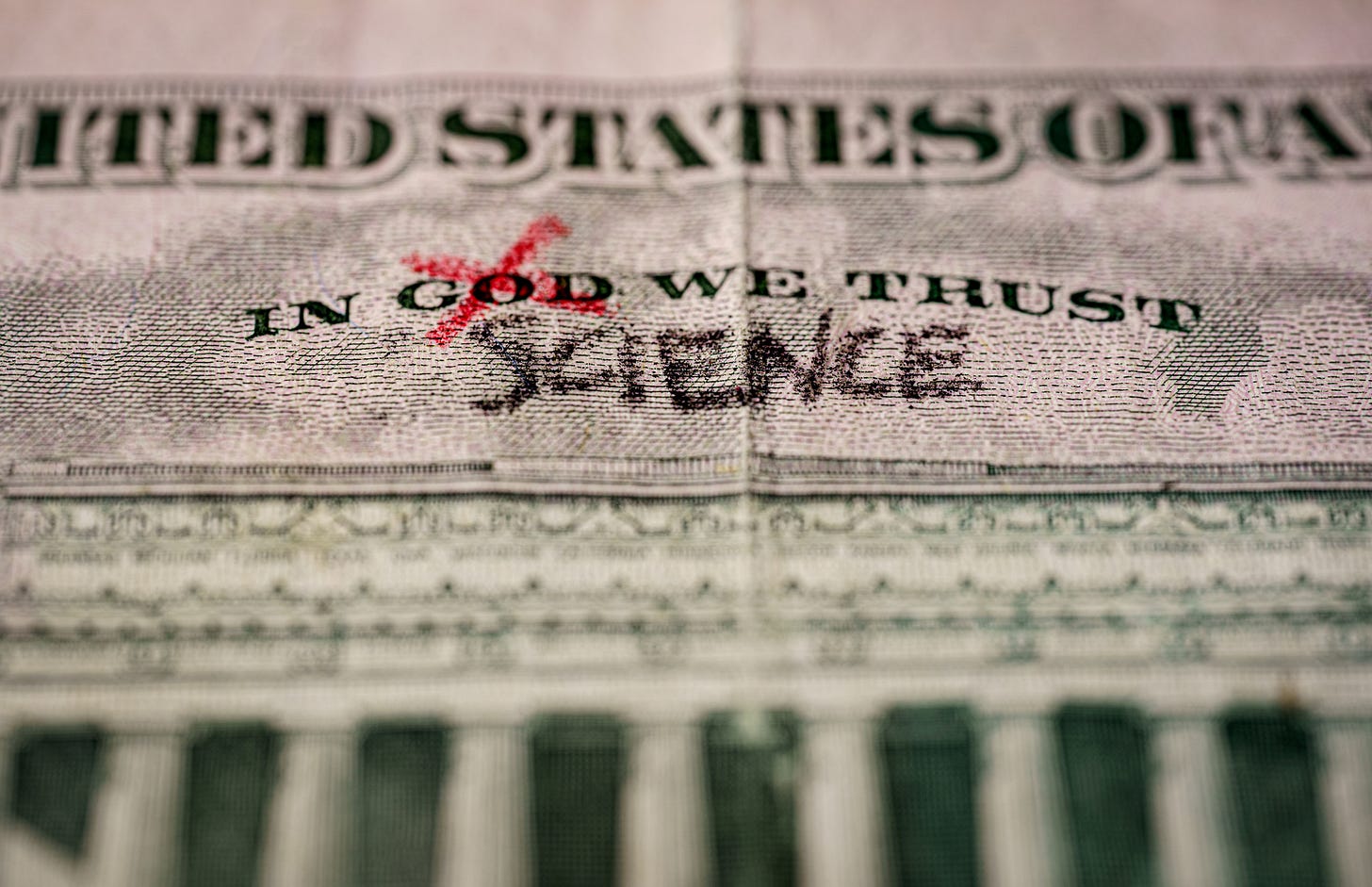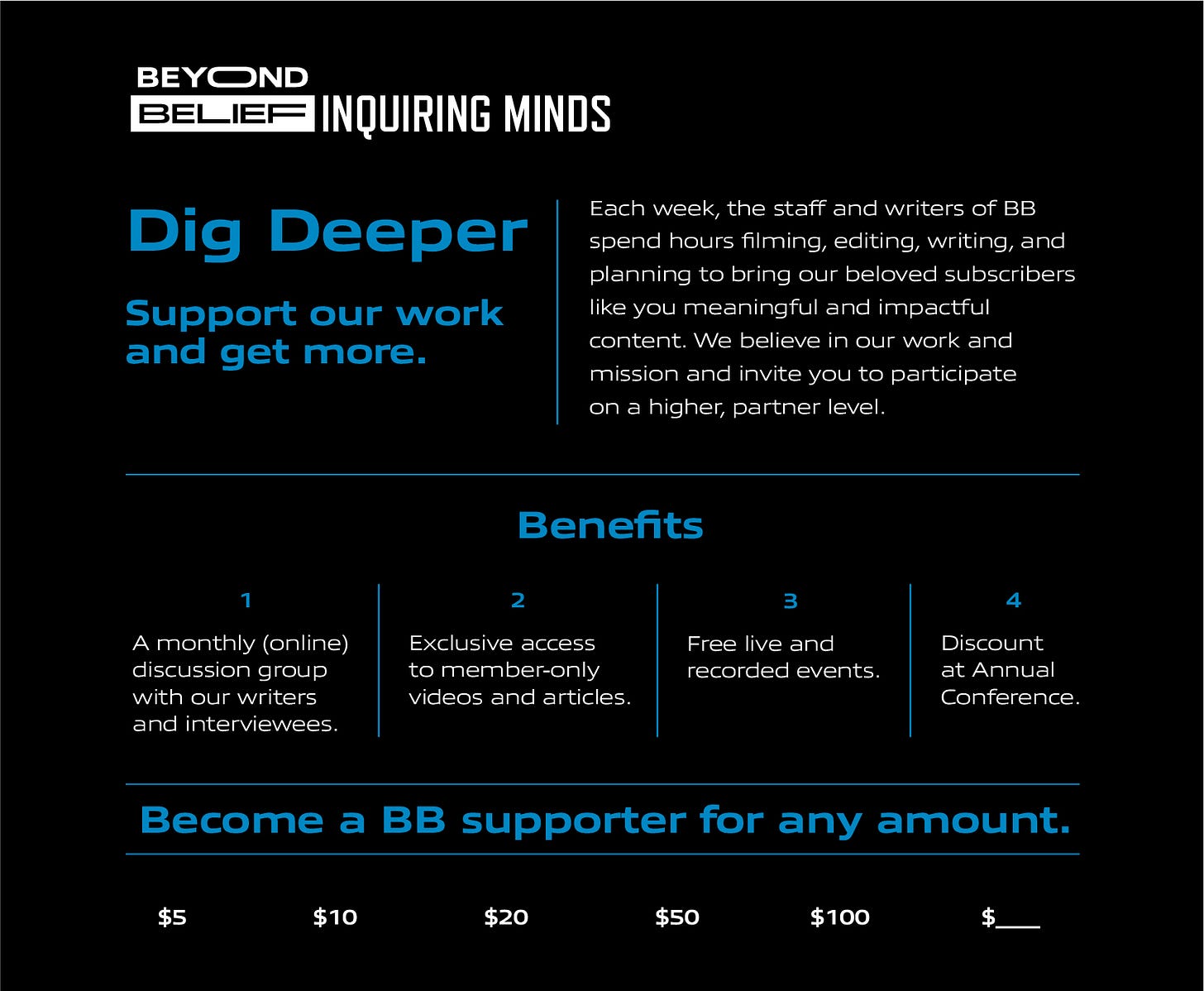Why the World Needs More Public Philosophy
Transforming the human race into a philosophical species
What is “philosophy?” It’s the kind of discussion that goes on around questions such as whether there’s a cosmic purpose to human existence (the meaning of life), what kind of reality we belong to (metaphysics), how we ought to be living our lives (ethics) and how we should organise our societies (political philosophy). There are many other philosophical issues, but they all lead back to this particular cluster – and ultimately back to the question of the meaning of life.
I’m going to try to persuade you that we need more public discussion on that kind of topic, and these days, public discussion mainly means online discussion, where people all over the world can join the conversation 24/7. Note that I’m not just thinking of public discussion of the fundamental issues but also applications to topical concerns – for example, whether the development of AI robots, which make human labour redundant, leaving us all free to lead lives of leisure, would change the meaning of life.
So, why does the world need more public philosophy? I’ll tell you why it doesn’t first. It doesn’t need more public philosophy to raise the standard of online entertainment. It also doesn’t need it because watching a philosophy video on YouTube or TikTok is good exercise for your brain, so you’ll be cleverer and more productive when you get back to work or school. Thinking about philosophy that way means completely missing the point.
Philosophy is supposed to be proper, sincere questioning aimed at finding out what you honestly and genuinely think about the kind of reality you belong to and the kind of life you’re living. It’s thinking about your situation and that of others of your kind from some of the widest perspectives possible. Philosophy is about making up your own mind on really big matters, which you can only do properly if you’ve considered the views of the great philosophers from history. That’s not entertainment or brain practice; it’s serious stuff – which doesn’t mean scary or hard work; it’s serious in a good way…seriously good, like a mind-blowing work of art or musical performance.
Not entertainment, but still entertaining
Image: Plato Symposium, Pinterest.com
Public philosophy shouldn’t be viewed as entertainment, but it can still be entertaining – if it’s boring, it’ll never catch on. Some of the greatest philosophy of all time has been incredibly entertaining – check out Plato’s dramatic story of his teacher Socrates on trial for his life (“The Apology”), for example, or for something a bit lighter, his story of Socrates at a drinking party, where the game is that everyone has to say what they think love is (“The Symposium”). Don’t assume that entertaining activities are trivial and serious ones dull.
Why, then, does the world need more public philosophy? I’ll give you three reasons. The first is that these days, you can always find something to divert you online, so there’s never time to think. But if you don’t think, you can’t make decisions about what to do with your life, so you can find yourself living on “autopilot” too often – you do what’s expected, believe what everyone does, and your thinking becomes overly practical.
When you’re on autopilot, you’ll think about how to resolve an argument you’ve been having with your friend or what you need to do to get a promotion from your boss, but apart from that kind of practical thinking, it’ll be entertainment all the way – so, if you did happen to consider getting into philosophy, it’d only be because you thought you might enjoy it, that you might quite like some brainy entertainment. And as I said before, you don’t want to be thinking about philosophy that way; you’ll miss the point of it.
Living on autopilot is fine; it helps you cope, and it’d be exhausting if you couldn’t sometimes “switch off” and “go with the flow” – it’s a bit like going down a flight of stairs. If you thought about every step, you’d probably trip up, but luckily, most people’s legs can do it on autopilot. Still, if overthinking is a bad idea, underthinking is too, and if you live too much on autopilot, you’ll miss opportunities to expand your understanding.
The kind of expanded understanding philosophy gives you can be used to steer your life in new directions. For example, in the last decade, there has been a massive resurgence of public interest in the Stoic philosophy, one which guided ancient Greek and Roman lives for centuries – once again, it is leading people to look at their lives differently then live differently, and in a way they find they much prefer. The more aware you are, the more choices you have, the freer you are.
A bridge between religion and science
A second reason we need more public philosophy is that philosophy occupies a “no-man’s land” (as Bertrand Russell put it) between religion and science. Religion and science are the two major intellectual forces in our world and we need philosophy to balance them out. Religion gives people ethical guidelines about how to live, together with consolation and hope, while science gives us the understanding and technology needed to live as we do today. But the different religions of our world sometimes come into conflict with each other, as well as with science – the latter because some people treat science as a religion of atheism, while others think their religion gives them a right to dispute scientific expertise.
The fact that philosophy exists between religion and science makes it the perfect mediator. You can think philosophically about religion to decide how, or whether, to follow its guidelines, and you can think philosophically about science to decide how to interpret its findings. Theologians and scientists can think philosophically, and so can everybody else – it’s a common ground on which we can all converse, even if we can’t always agree.
The third reason is that as technology continues to develop faster and faster, we’re going to need to take some kind of collective and rational control of the power we are accumulating. Just consider: in the 26th century, nuclear weapons will be very old tech – they’ll be to 26th-century people as 16th-century pikes and cannons are to us now. But pikes and cannons are available to any group that wants them, however nutty – obviously, we don’t want it to ever be like that with nukes. So, the dilemma is: if technological development is going to make humans continually more powerful, how do we stop the power from being catastrophically misused?
The answer I favour – idealistic in a good way – is for the human race to transform itself into a philosophical species. We enact this transformation by having philosophical conversations about what we want to do with ourselves by means of an internet-fuelled massive expansion of public philosophy. If we do that, then maybe we’ll decide we want to colonize the galaxy, or maybe we’ll decide we want to stay on Earth but live in virtual reality. Whatever it is we decide, it will need to be a decision because there’s no autopilot for the future of the human race.
Check out Dr. Tartaglia’s new book Inner Space Philosophy.







